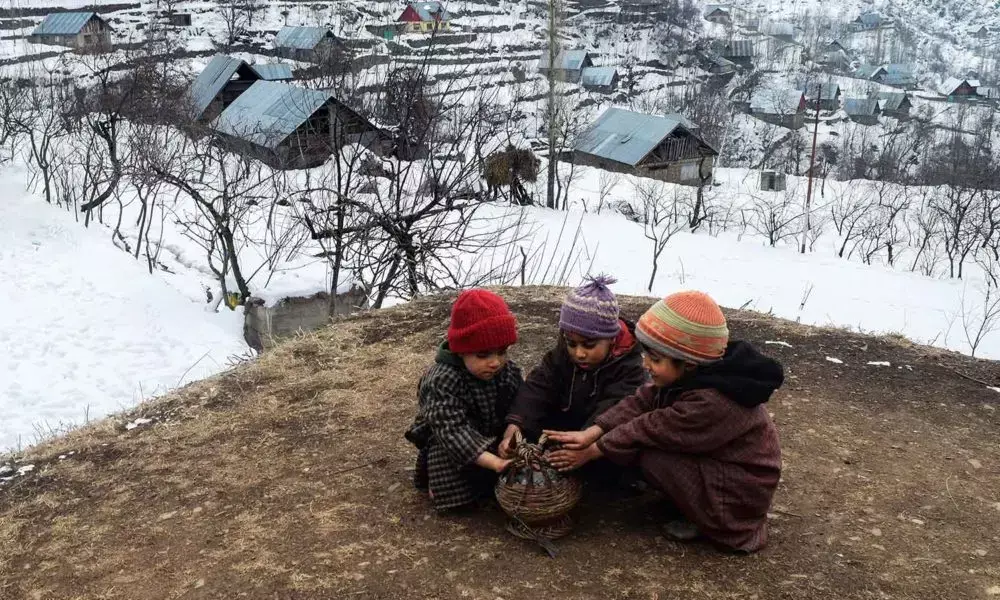Kashmir Has a Severe Power Shortage
Unprecedented drop in production

With the onset of harsh winter, Kashmir is witnessing a severe power shortage, with people enduring power outages of up to 16 hours a day. The dire situation has cast a shadow over daily life, especially as the temperature has dropped to sub-zero levels, making things more difficult.
To put the crisis in perspective, Kashmiris require a minimum of 1800 megawatts (MW) of power for 16 hours of electricity a day. For round the clock supply, a staggering 2200-2300 MW is necessary. The current power generation falls woefully short of this requirement, with the Power Development Department managing to generate a mere 50-100 MW per day, this winter, a stark contrast to the 200-250 MW produced during previous winter seasons.
The unprecedented power crisis has triggered a wave of frustration amongst residents, who find themselves at the mercy of a deficient power supply system. In conversations with locals, a common sentiment emerged, summed up by Srinagar resident Nazim Humayun, who exclaimed, “Despite living in the era of artificial intelligence, the majority of Kashmiris have been pushed back to the Stone Age by the ongoing power shortage.”
Local pharmacist Nasir Ahmad shared his concerns over the prolonged power cuts. “The extended power cuts are taking a toll on my business. I find myself compelled to shut down my pharmacy earlier than usual and head home due to the cold. Working in such harsh weather without adequate heating is simply not feasible,” he said.
Srinagar resident Mubashir Reshi echoed similar sentiments, saying, “There have been unprecedented, untimely power cuts. We have now stopped using heavy-duty heating appliances to minimise the load, but there seems no improvement in the supply.”
“The impact of the power crisis is particularly severe for patients relying on home oxygen supply,” remarked local resident Kamil Farooq. “They are facing significant challenges in maintaining essential medical support.” He emphasised the profound difficulties being faced by the affected population.
The government currently procures 1150 MW of power, leaving a substantial deficit of 650 MW. If this deficit were addressed, power cuts could potentially be reduced to a more manageable duration of 6 to 8 hours a day.
H Rajesh Prasad, principal secretary in the Power Development Department, claimed in a press conference Friday that the demand for power in Jammu and Kashmir had surged to 3200 MW. This is against a sharp decline in electricity generation, currently languishing at 85% below the summer season figures, with a meagre 150 MW generated compared to the 1050 MW witnessed during the summer.
The ongoing power crisis prompted political party leaders to raise concerns about the Indian administration’s intentions. They organised demonstrations to highlight the demand for a resolution to the ongoing crises.
Addressing a rally in Bandipora last week, National Conference vice-president Omar Abdullah expressed willingness to assist the administration if they were unable to manage the current situation. “I am ready to guide the administration to find a solution, being a former power minister,” he said.
Labelling the current power crisis in Kashmir as unprecedented, M.Y. Tarigami, general secretary of the Communist Party of India (Marxist) and spokesperson for the People’s Alliance for Gupkar Declaration, stressed the need for a united front amongst political parties to address the issue. “India and Pakistan signed Indus Water Treaty and people of J&K are suffering. We should be compensated for the losses which we are facing due to the treaty,” he said.
Responding to mounting criticism from opposition leaders, trade bodies and various sections of society, the administration led by Lieutenant-Governor Manoj Sinha has reportedly established a committee to explore the procurement of electricity from the Northern Grid. The move is seen as a desperate measure to alleviate the unprecedented power crisis that has plunged Kashmir into darkness for a significant portion of each day.
Responding to questions, Javed Yousuf Dar, chief engineer (distribution) in the Kashmir Power Development Corporation Limited, emphasised the need for responsible electricity consumption by the people. He highlighted the challenges arising from their current usage patterns.
“People are exceeding their registered load, contributing to a substantial 54% loss as they fail to pay for the electricity they consume,” he shared. “While we are eager to increase power supply, it necessitates financial resources, which in turn require responsible consumption.”
Dar pointed out a concerning trend where residents were using “crude” heating equipment, such as boilers, straining the already stretched electric infrastructure. He asserted, “There is no system anywhere in the world that is equipped to meet such demands. It’s crucial for people to use electricity within their registered load limits.”
Taking a specific example, he said, “Our flat-rate consumers have an average load of 1 kilowatt, but we observe consumption ranging from 5 to 6 kilowatts. This not only strains the system but leads to heightened curtailment of power.”
Cover Photograph: Children in Kashmir keeping themselves warm with the age old Kangri.


